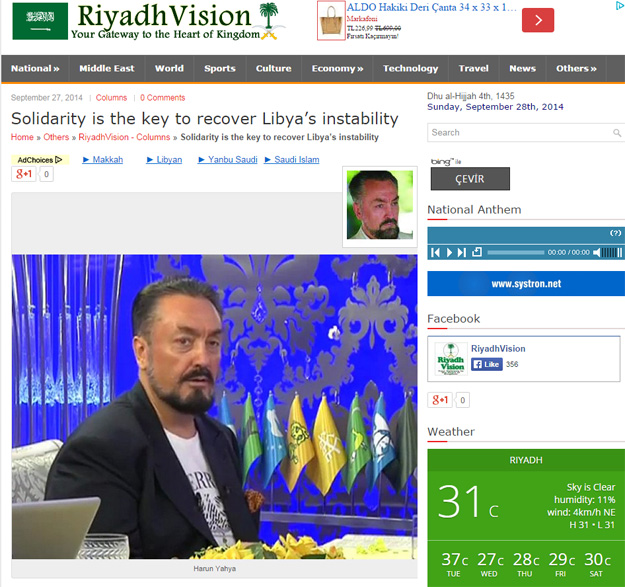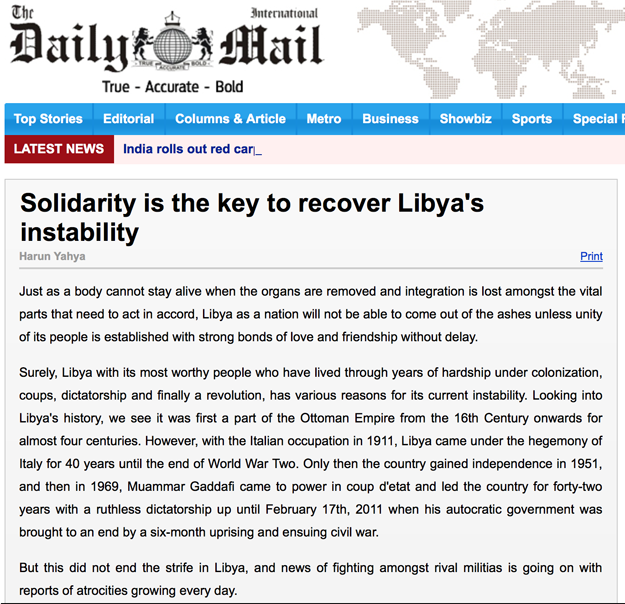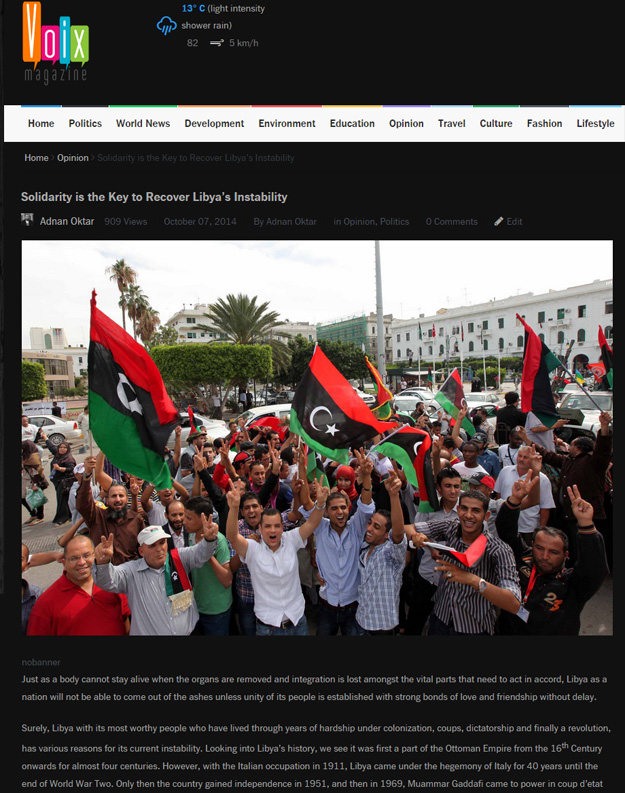

Just as a body cannot stay alive when the organs are removed and integration is lost amongst the vital parts that need to act in accord, Libya as a nation will not be able to come out of the ashes unless unity of its people is established with strong bonds of love and friendship without delay.
Surely, Libya with its most worthy people who have lived through years of hardship under colonization, coups, dictatorship and finally a revolution, has various reasons for its current instability. Looking into Libya’s history, we see it was first a part of the Ottoman Empire from the 16th Century onwards for almost four centuries. However, with the Italian occupation in 1911, Libya came under the hegemony of Italy for 40 years until the end of World War Two. Only then the country gained independence in 1951, and then in 1969, Muammar Gaddafi came to power in coup d'etat and led the country for forty-two years with a ruthless dictatorship up until February 17th, 2011 when his autocratic government was brought to an end by a six-month uprising and ensuing civil war.
But this did not end the strife in Libya, and news of fighting amongst rival militias is going on with reports of atrocities growing every day.
The reason why Libya attracted the attention of colonial powers was its resources, mainly petroleum discovered in Fezzan in 1956, as well as supplies of natural gas and a huge iron ore deposit in the same region. Based on the mindset of a selfish hegemony intending to exploit the reserves of this vast land, the colonizers never undertook building the proper infrastructure or making the required investments that would make it possible for its people to subsist. That is why the majority of Libyan people are living in poverty, and 30% of the youth is without a job and cannot make a living.
What is more, in the course of the 20th Century through the subsequent regimes, the partitioning of the nation into three provinces, ten governorates, and 1,500 administrative communes during the Gaddafi dictatorship resulted in disintegration and lack of momentum in the community. His patronage of his own family members and tribal relations while deliberately abandoning a greater majority of the Libyan people to discord and feud, made the tribes and districts lose heart. Fragmentation into communes holding separate budgets, legislative and executive powers that were supervised by revolutionary committees under the authority of secretaries whom Gaddafi personally selected brought only the conflict and corruption that is still troubling the country.
There was also serious wrongdoing on the part of the government at the time of Gaddafi, which included poor prison conditions, arbitrary arrest and detention, and political prisoners being detained for many years without charge or trial as the judiciary was controlled by the state. The entire people were oppressed and put under constraint by means of prohibitions on freedom of speech, press, assembly and association, as well as religious observance. Social life was impaired with widespread domestic violence against women, and there were reports of human trafficking. What was more, ethnic and tribal minorities suffered discrimination.
It is apparent that colonial exploitation, and the autocracy of Gaddafi and his strategy of turning brother against brother based on tribal discrimination destroyed the nation and instilled hostility within the community. Greed for ever more power and wealth, along with the self-serving agendas of the former regime, resulted in fierce prejudice and even armed conflict amongst the Libyan people.
If each and every individual in the courageous and faithful community of Libya acts in harmony and friendship, like the building blocks of a “well–built wall”, and draws lessons from the errors made before, the Libyan people will be able to overcome the major obstacle to peace, which is hatred and animosity that incites a ruthless conflict inside the nation. And Libya as a nation will only be stable, progressive and strong with an intact spirit of solidarity.



